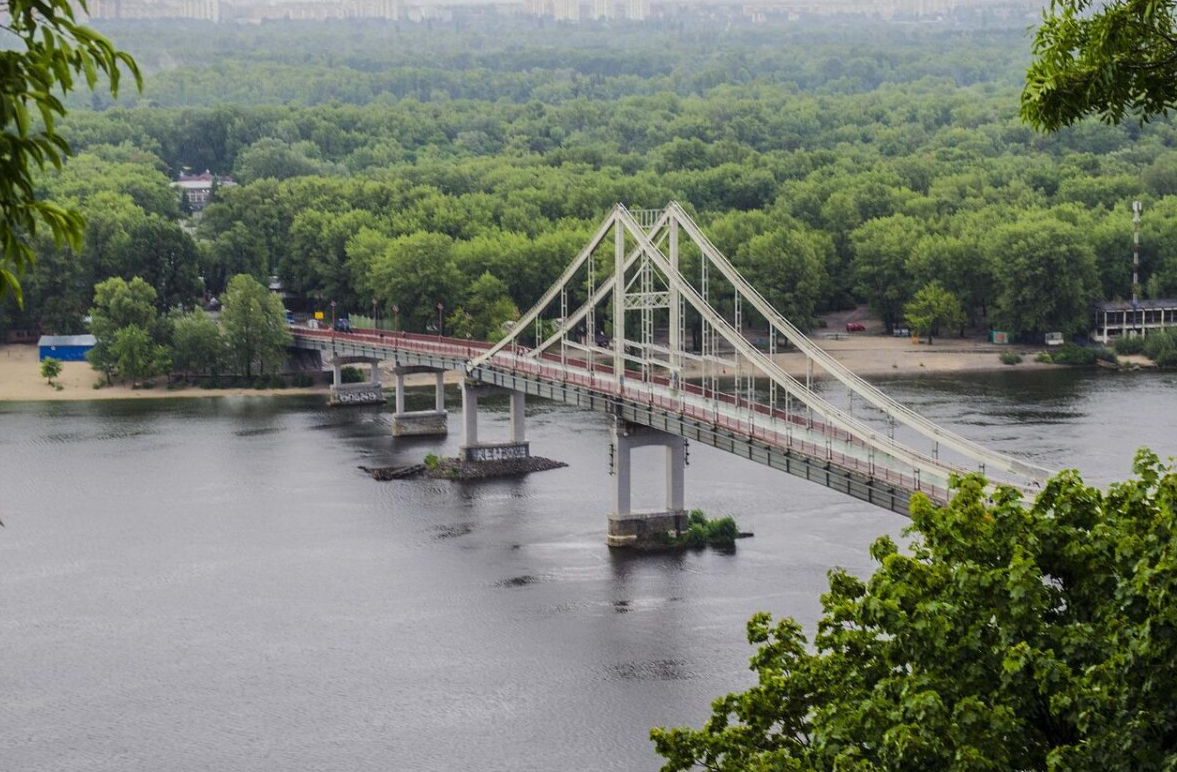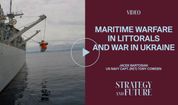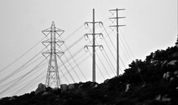“The Anxious Dream”- à rebours? A political plan for Poland’s victory and peace in the East. Part 1
This time we’ll start with poetry.
My attention was drawn towards the following poem during Easter whilst reading Professor Andrzej Nowak’s latest book, the chapter describing Poland’s dependence on the Soviet empire after World War II. Czesław Miłosz described the centuries-old Russian imperial pressure on our part of Europe from the east, very depressingly, as follows:
Orsha is a bad station. In Orsha, the train can stay for a day.
So maybe it was in Orsha that I got lost, six years old,
and the repatriation train started, leaving me behind
Forever. As if I understood that I would be someone else
The poet of another language, with a different fate.
As if I’m guessing my end at the shores of Kolyma,
Where the bottom of the sea is white with human skulls.
And then a great terror came to me,
That, which was to be the mother of all my fears.
The little child trembles before the pain.* Before the Empire.
Which moves and moves west, armed with bows, ropes, Papasha submachine guns,
Riding a carriage, hitting the rider on the back,
Or in a jeep, in tarps, with a file of conquered lands,
And I have been running away for a hundred or three hundred years
Over ice and swimming, by day, by night, any further,
Leaving over the home river with hole-pocked armour and a chest of the king’s gifts,
Across the Dnieper, then across the Niemen, across the Bug, and across the Vistula.
But I come to a city of tall houses and long streets
And fear torments me, for what am I here to them but a peasant?
Because I just pretend to understand what they are so smart about
And I try to hide my shame, my failure from them.
Who will feed me here when I walk at cloudy dawn
With a tiny coin in your pocket for one coffee and no more?
A refugee from imaginary countries, who will I be here?
Stone walls, indifferent walls, dreadful walls.
An order not of mine, but of their minds.
Now just say yes, don’t kick. You won’t run any further.
“The Anxious Dream” A translation of the Polish-language poem Trwoga – Sen (1918) by Czesław Miłosz
*This sentence is written in (transliterated) Russian in the original.
The Dnieper river (source: Pixabay)
Since the reign of Tsar Peter the Great, this peculiarly Russian combination of primitivism and civilisational backwardness with simultaneous military power, growing demography and islands of high civilisation: Russian literature, ballet, space travel or atomistics, pushing towards the setting sun, destroyed and trampled the development of nations between the two interior seas of Europe – the Baltic and the Black. Miłosz’s poem is a good illustration of this sense of a reversal of civilization, escape, eternal retreat, misfortune at the breakdown of the civilised order.
In 2022, in connection with the war between Russia and Ukraine and the course of hostilities unfavourable for Russia, we have the best chance in 100 years, and maybe even in 300 years, to reverse the whole situation. The Anxious Dream à rebours! It’s time to think about the Polish victory plan. Yes – Polish, Ukrainians certainly have theirs and let’s not do it for them. Because we should consider what the war and the new geopolitical situation should bring for Poland so that our interests are best served.
Our rivalry with Russia in the areas between Poland and Russia has always been aimed at establishing an advantage, not good neighbourly relations. Mieroszewski wrote in the twentieth century: “It seems that while the Russians never appreciated the Ukrainians and still do not appreciate them…” (as can be seen from the course of the war in 2022), “they have always overestimated and still overestimate the Poles. They always see us as rivals – either active or only potential, but always as rivals.”
Litvinov spoke about the rebuilding of the Polish empire from the 16th and 17th centuries, which seems comical to us, but for Litvinov, unlike us, the 20th century was a continuation of the 16th and 17th centuries, with the same traditional problems, including Polish problems. Like the Tsars, Stalin, Litvinov, Brezhnev and the like believed and believe that either the Poles or the Russians would rule in the ULB areas (Ukraine, Lithuania, Belarus).
Mieroszewski wrote further, that: “The advantage of the Russians was confirmed by HISTORY, which turned our fights and uprisings to ruin. But most Poles do not believe that we can ever gain an advantage over Russia, and the child of this unbelief is the servile satellite mentality. One can add, unfortunately, that this is strongly embedded in the Poles.” Mieroszewski’s statement that it was possible to push Russia away from the gates of Przemyśl to Smolensk was even more fanciful. And yet, this is what actually happened after 1991.
The war in Ukraine, successive victories of the Ukrainian army, also supported by military and material aid from Poland, gives a chance to push Russia even further to the east and push it out of the European system for good. It may even lead to a political and social crisis, Smuta and disintegration of the state. The recovery of Crimea and Donbas and the destruction of the cherished land forces of the Russian Federation could lead to this.
Going further, the plan for Poland’s victory in the war between Russia and Ukraine is the reverse of the quoted poem, that is, when instead of pushing for 300 years with its influence to the west, Russia will now withdraw, shrink, give way under force across the Dnieper, the Don, and the Volga, even beyond the Urals. Under the influence of sanctions and a losing war, it escapes, collapses and ceases to count. In other words, when Russia has no basis whatsoever to influence the political situation in Europe.
The time has come for Polish politicians to take a piece of paper, a pen and write down the plan of Poland’s political victory as sheet music. So what should have happened or has to happen consecutively for Poland to benefit from this war as much as possible?
It’s not just enough to win a kinetic war. This, of course, means repelling the invasion, regaining Kherson, Mariupol, the whole of Crimea with Sevastopol, and Donbas with its mines and iron. This means the destruction of Russia’s land forces so that it can no longer be treated as a superpower influencing the security architecture of Europe.
It is often much more difficult to win a peace that will bring stability, development and future. It is necessary to win peace for Ukraine in order for it to develop, to obtain investments from the world, to have full access to the sea, world markets and raw materials. That Kyiv would be able to control the movement of strategic flows on its territory and shape them in accordance with its needs, and not with the artificial dictates of its dominant neighbour, so that it could freely decide with whom it has trade relations. That it would not be dependent only on the aid funds coming latitudinally from Western Europe, but that it would have development abilities itself.
It is also important for Poland to change the balance of power in Europe as a result of this war, which will also be beneficial for all the nations of the Baltic-Black Sea Bridge. Ukraine should become a Western state, but for our part of Europe to become an independent economic system, although anchored in the EU, but capable of creating its own value chains and a system of economic circulation, breaking the dualism on the Elbe, using the huge potential of Ukraine and Belarus and opening to the Black Sea and trade to the south.
It is equally important that the United States remain in this part of the continent both militarily and in terms of investment, and that Sweden and Finland join NATO, strengthening the power and influence of the United States in the Old Continent at the expense of the unfavourable ideas of continental France and Germany in cooperation with Russia, whose emphatic military defeat would nullify such ideas.
Both Poland and Ukraine will benefit from arranging internal affairs in Ukraine and their economic system in such a way as to break the oligarchy and control the influence of German capital on the reconstruction of Ukraine, in particular Ukrainian agriculture, which Germany and its concerns have a taste for.
The optimal plan is to dilute German strength in NATO and the EU after winning the war and breaking the raw material policy, and thus the high margin of the German economy. Especially since the upcoming energy and food crisis will redefine the EU in favour of the countries of our region, with the breaking of continental consolidation in the face of the greater presence of the British and Americans on the Baltic-Black Sea Bridge. This would be the end of the German Bismarck policy of “pretending to be stupid” and drawing raw materials from Russia (Russia as a source of Germany’s political power in Europe), having the option to trade with China and the peaceful development of Eurasia at the expense of the Atlantic world), with simultaneous access to world markets thanks to the US and as a result of all of the above control of the continent by its economic power.
Therefore, we should not agree to any “crooked” truce proposed by France and Germany, because it will not win peace for Ukraine, which will become a hull state, without good access to the sea and Donbas resources and no chance for investments, while remaining in a frozen conflict.
Planning the parameters of peace already during the war is often more important than the war itself, although its course and result are the material from which the parameters of peace are ultimately created.
It is now 100 years since the signing of the peace treaty in Riga which ended our war in the East with Soviet Russia and established relations in our part of the world for the next 20 years, including the end of Ukrainian and Belarusian dreams of self-determination. Then, together with Tehran, Yalta and Potsdam and the end of World War II, the chapter of the Jagiellonian policy of the Polish state was closed. Or so it would seem.
In 2022, we begin to dust off the old books and strategies of our former state.
In Riga in 1921, Poland won the war, but lost the peace. This is how the course of military operations and peace negotiations can be summed up. One more battle was missing somewhere near Orsha or Vitebsk in the Smolensk gate. Such a battle would have pushed Russia beyond the Dnieper and the Dvina and laid the foundations for a federation with Belarus and Ukraine. There were apparently not enough forces for this, both political and military. Although as to whether this was really the case, discussions are still ongoing, and the source materials do not give a clear answer what Józef Piłsudski (because he was the one who made the decision) “felt” in the autumn of 1920 and the spring of 1921, when it comes to the specific balance of power. It was Piłsudski who had to consider the arguments that were to decide about war, peace and the geopolitical system of Eastern Europe.
Ukraine’s President Zelensky has to agree to his own version of the Treaty of Riga. Poland lost the peace then, and Piłsudski himself was disappointed with the Treaty of Riga. Giedroyć even claimed that after signing the treaty, Piłsudski became a different man, closed to others, not believing in the durability of the Polish state. He felt that the existence of Poland was temporary, that he had failed to build a new, favourable balance on the Baltic-Black Sea bridge that would permanently keep Russia outside the European system by building a federation of states separating it from Europe. Because the war in Ukraine is all about whether Russia is in the middle of the European system and plays within it or outside of it, thus giving a chance for the development of Poland, Ukraine, Belarus, the Baltic state, etc., respecting the civilisation rights of those who are dear to them, about which Miłosz recalls so beautifully in the poem above.
Therefore, let us wish Zelensky that he will have enough strength and that he will not be forced to peace on German and French conditions, especially when autumn comes, there will be a social fear of the cold, the lack of raw materials and shortages and food for Europeans who will traditionally forget about values and what was going on with this war. They will want everything to be the old way.
Autor
Jacek Bartosiak
CEO and Founder of Strategy&Future, author of bestselling books.







Trwa ładowanie...